Su/spend - experimental living plant work by Lloyd Godman based on the principle of super stainability - © Lloyd Godman
Scroll down for history >>>>
20 May 2015:
Stu Jones, architect Toby Reed, State MP Cindy McLeish and Lloyd visited the Eureka Tower to check the plants today. All plants alive and growing. Since the last visit the building have laid thick plastic grass on the two landings. The artificial grass even has woven in a few stands of brown to give some "reality" of dead leaves. Although there was little wind on the street level, the wind on top and the landings was blowing very strongly, with grains of sand laid on the artificial grass as ballast embedding between the leaves of some of the Tillandsia plants. The plants on both landings at levels 56 and 65 are growing well with more pups forming from the parent plants, as is the cage plants on top level 92. However, of the two species at level 91, only one plant is growing well and the other plant which was the only plant to have flowered during the experiment is struggling. It is possible that this plant cage is located in a rain shadow and may not be receiving enough rain. It still has the growing tip alive and has formed new pups. On the other hand some plants in any location can die for unknown reasons, with the other plant alive it may well be the case. To be certain we would have to install a greater number of plants in the same location for a similar period of time.
The Eureka experiment successfully proves that the Tillandsia plants can be grown with no soil or auxiliary watering system on the tallest of buildings in a city like Melbourne, and opens a portal for installing plants in a creative but effective manner with an extremely high ESD rating on super high-rise buildings. The management of the Tower have been very supportive of the experiment, accommodating to work with, and there is potential for a larger project in the future. Unlike larger hard tissue plants, as light weight soft tissue plants, Tillandsias do not pose problems if at anytime they were detached from the building.
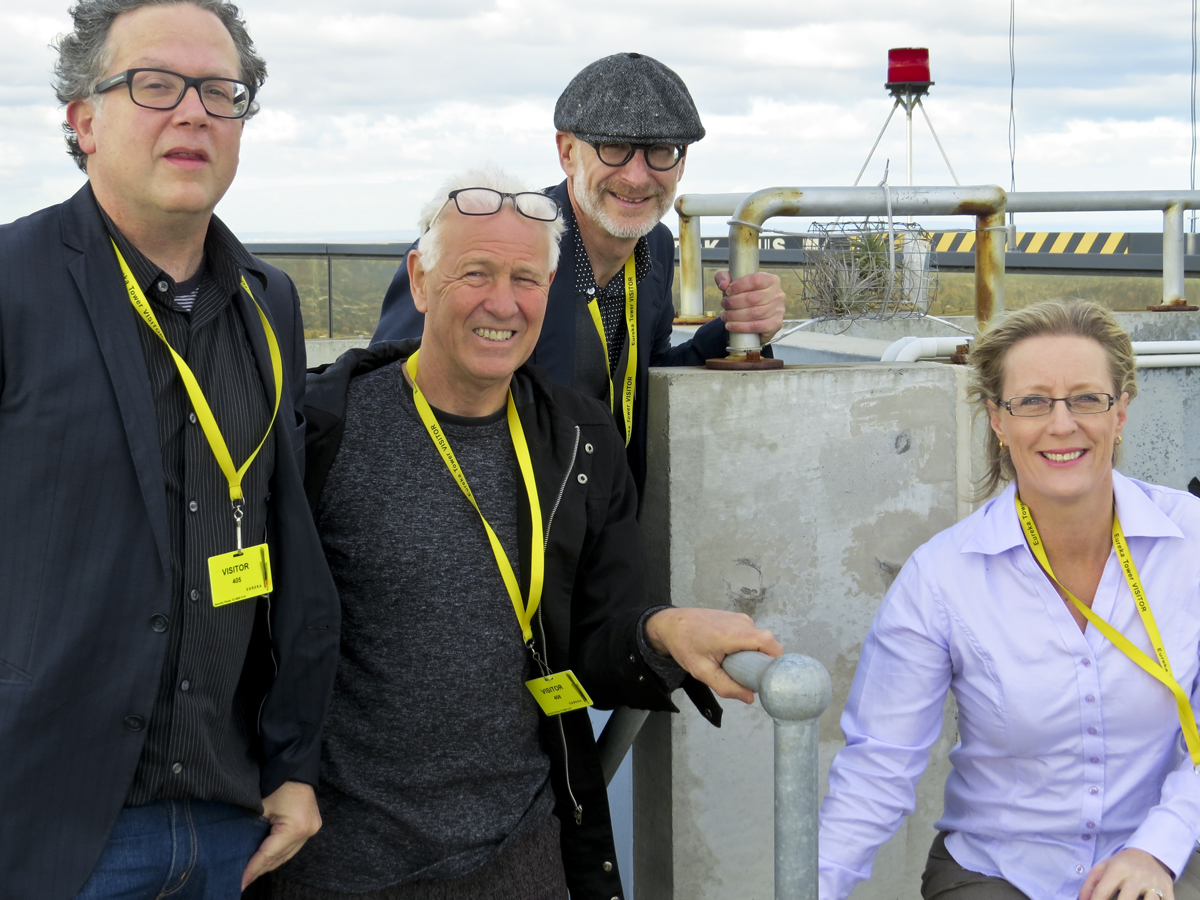
Architect Toby Reed, Lloyd Godman, Stu Jones, and State MP Cindy McLeish at level 92 Eureka Tower, 20 May 2015. The plant cage is attached to the rail by Stu's hand. |
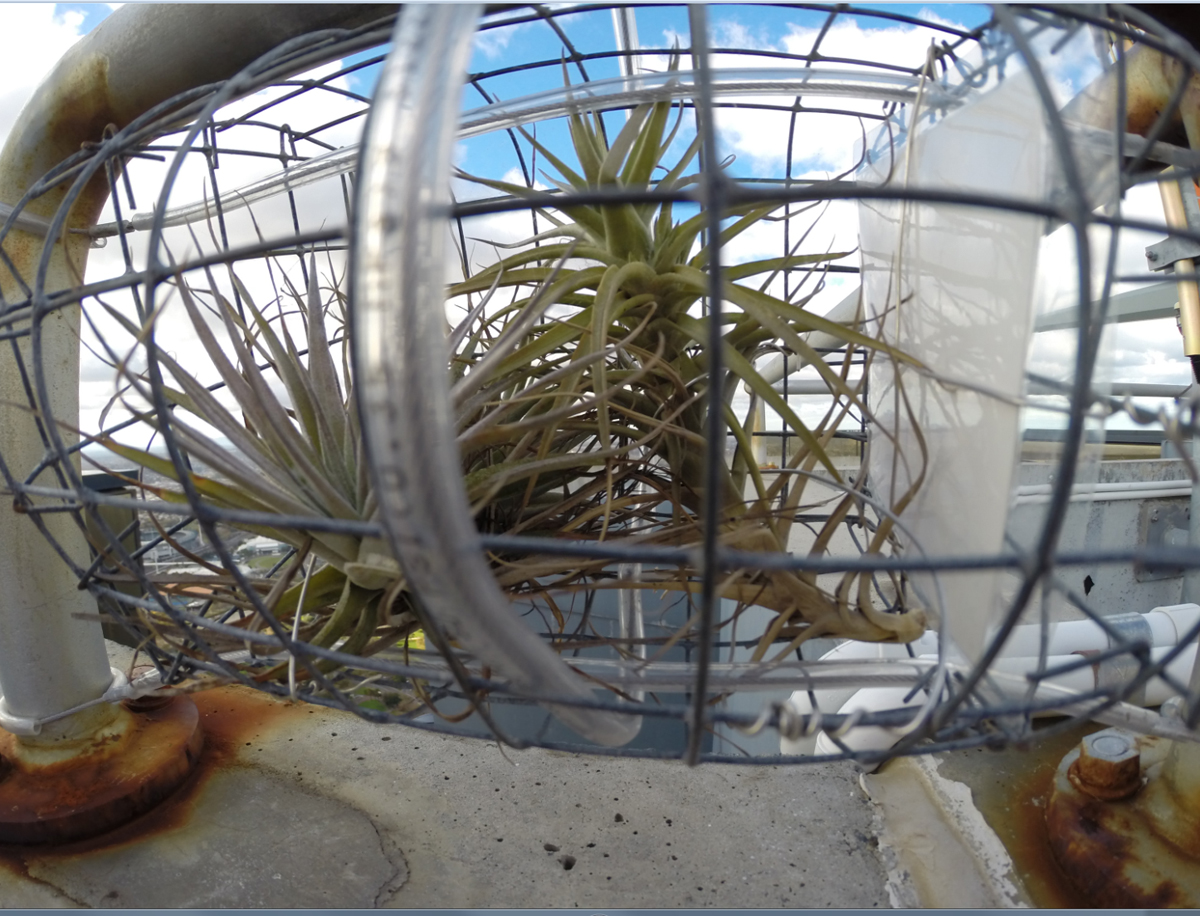
GoPro image of the Tillandsias level 92 Eureka Tower, 20 May 2015. Pups can be seen on the plant on the right. Image Toby Reed |
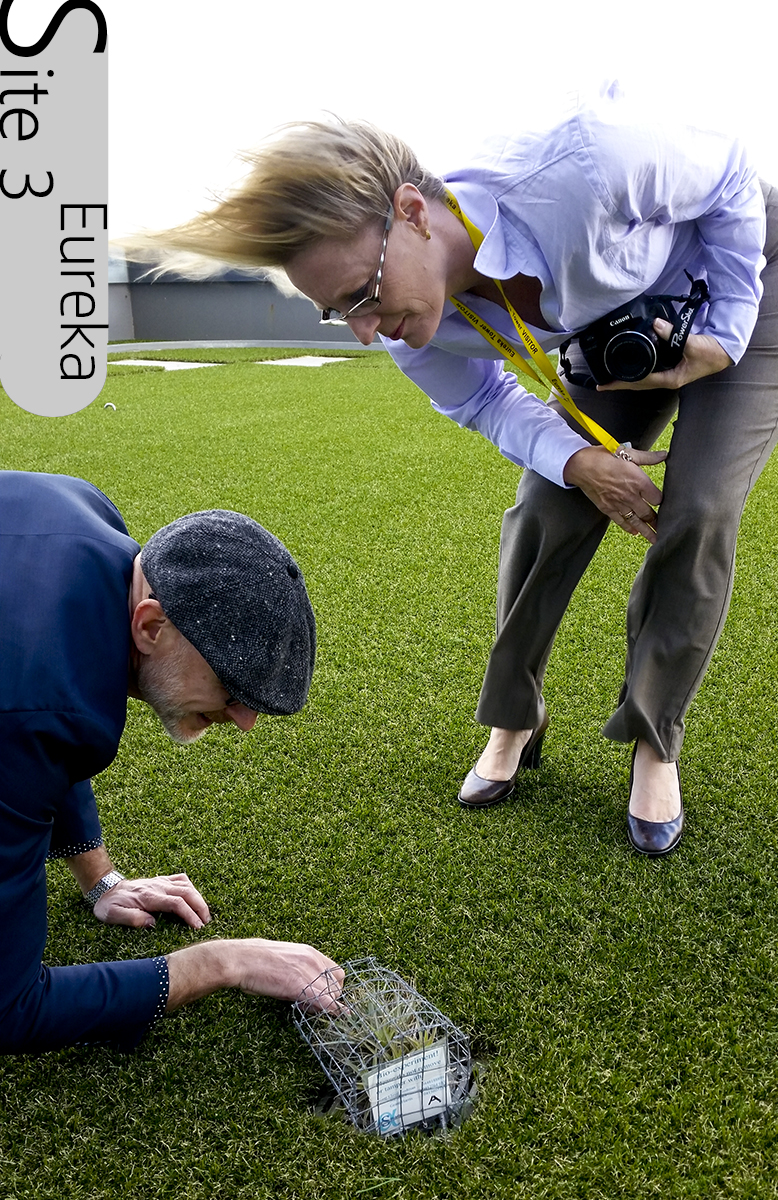
Stu Jones and Cindy McLeish check the plants on level 56. Note the addition of the artificial grass and the wind on Cindy's hair. 20 May 2015 |

Cindy McLeish, Stu Jones and Lloyd Godman check the plants on level 56. Note the addition of the artificial grass. 20 May 2015 |
25 February 2015
Today Stu Jones and Lloyd Godman visited the plants on all four sites on the Fender Katsalidis designed Eureka Tower with writer for Sourceable Angela Fedele. The air plants have lasted well through a very demanding,dry summer. The eight plants on all four sites are all alive and interestingly the plants exposed at the very top of the structure at level 92 are growing well. The plants on level 56 facing west and receiving the most extreme weather are also growing well and have put on the most growth.
One of the plants in the most sheltered position at level 91 has the least growth. This site receives the least rain and sunlight. However this is also the only plant to have flowered during the experiment period. The plant does have new pups forming. The other plant on this site is growing fine.
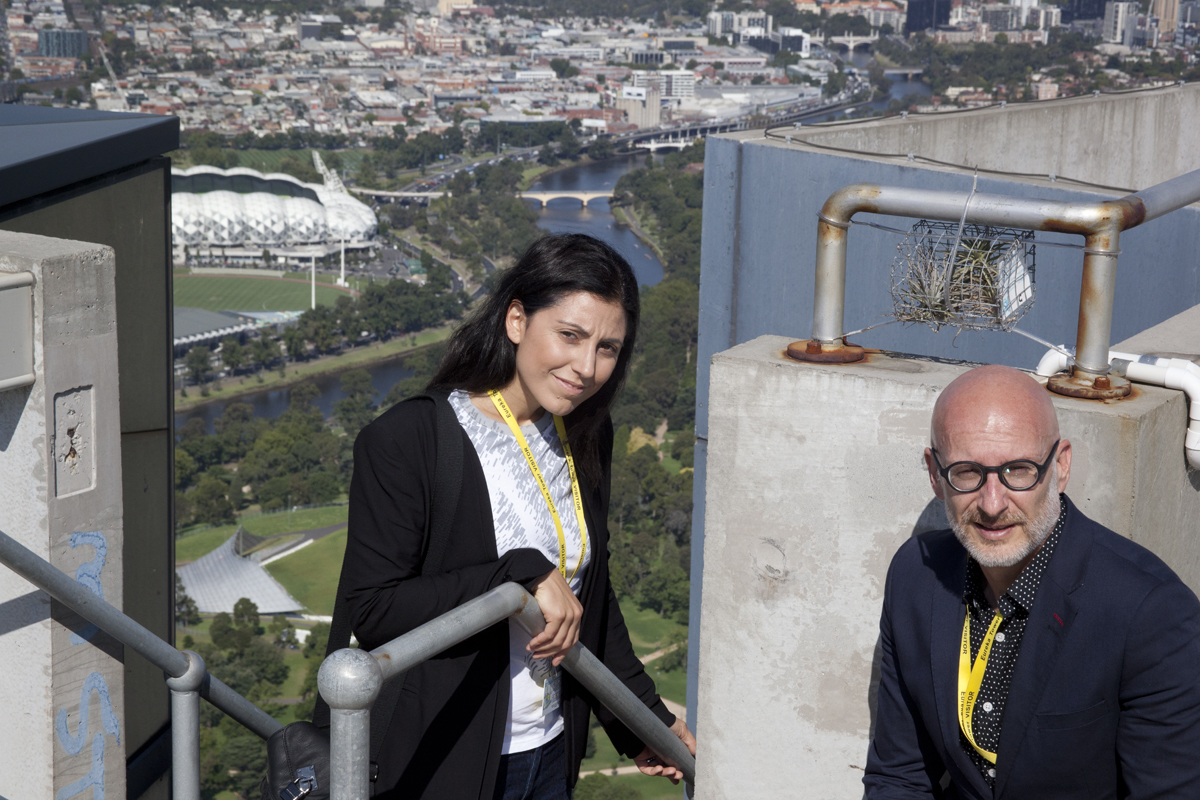 Angela Fedele with Stu Jones on level 92 - the air plants are above Stu's head. Angela Fedele with Stu Jones on level 92 - the air plants are above Stu's head. |
 Stu Jones and Lloyd Stu Jones and Lloyd |
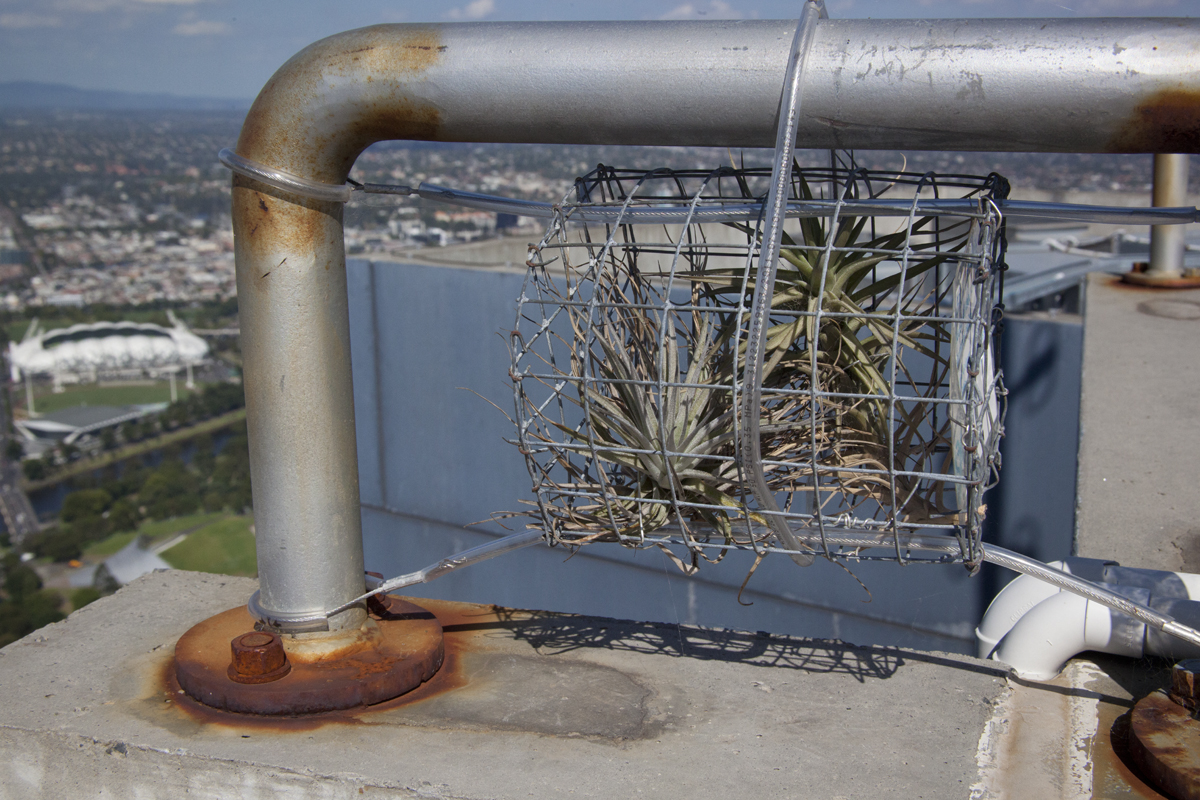
The Tillandsia air plants at level 92 have been exposed to the elements since June 2014 with no auxiliary water system or soil. |
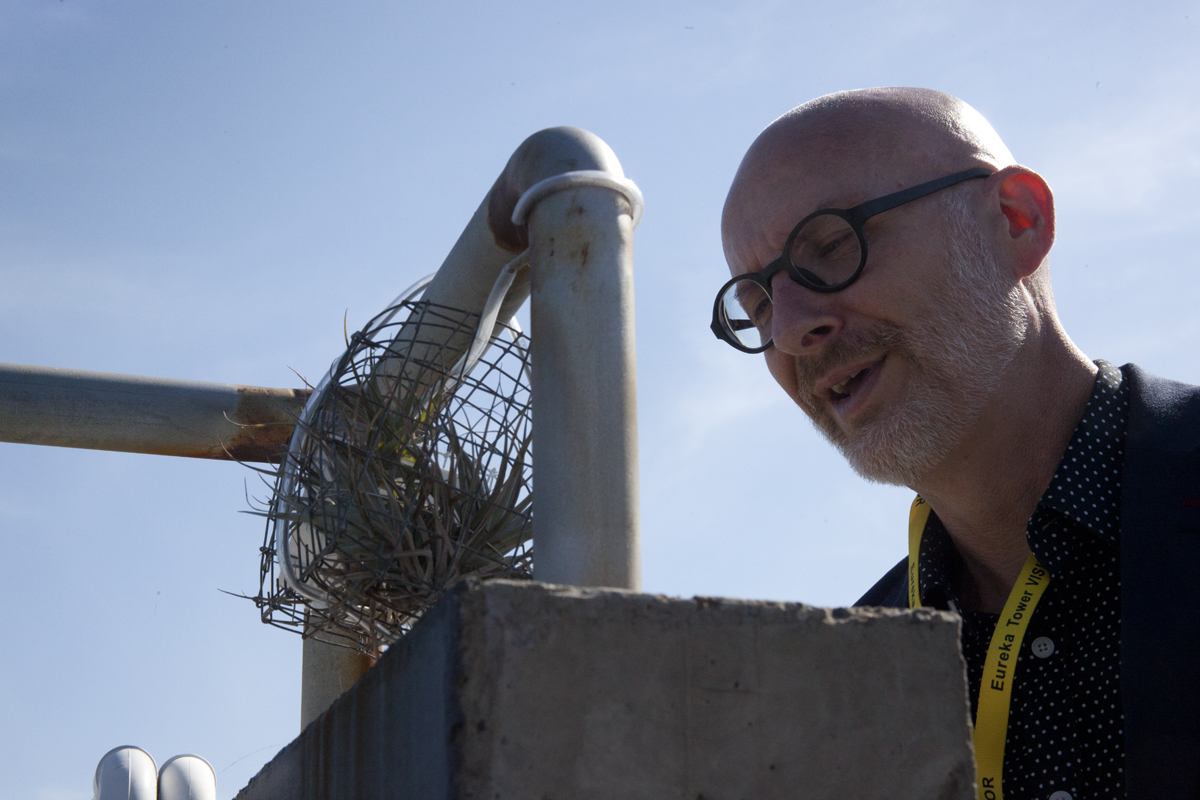
Stu Jones checks the growth of the Tillandsias on level 92 |
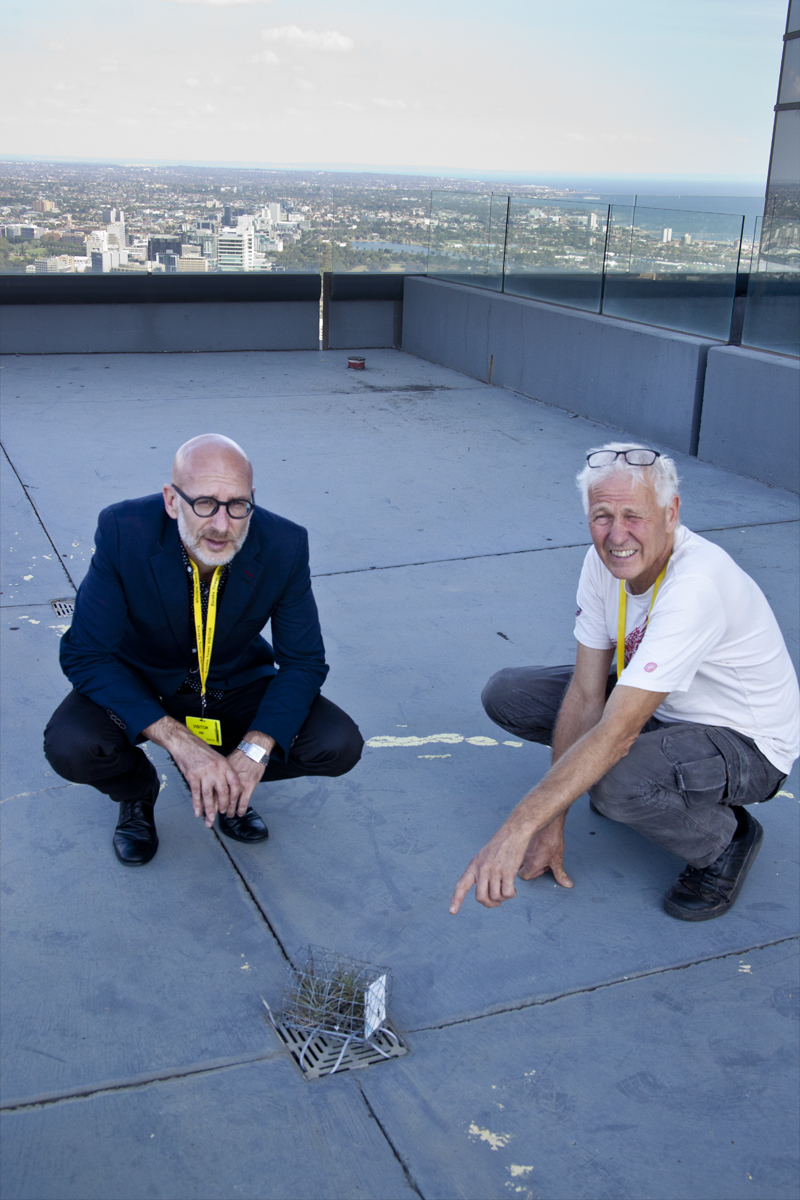
Stu Jones and Lloyd Godman check the plants on the landing at level 65 |
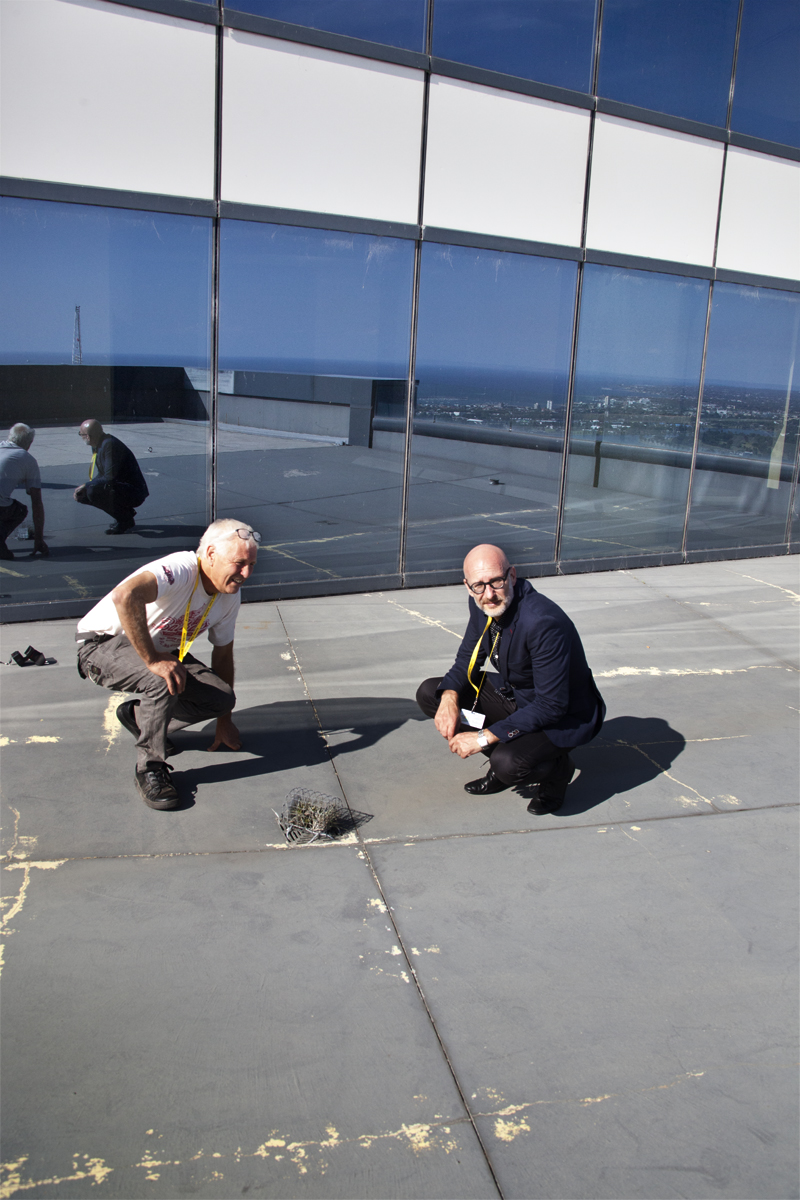
Stu Jones and Lloyd Godman check the plants on the landing at level 56 |
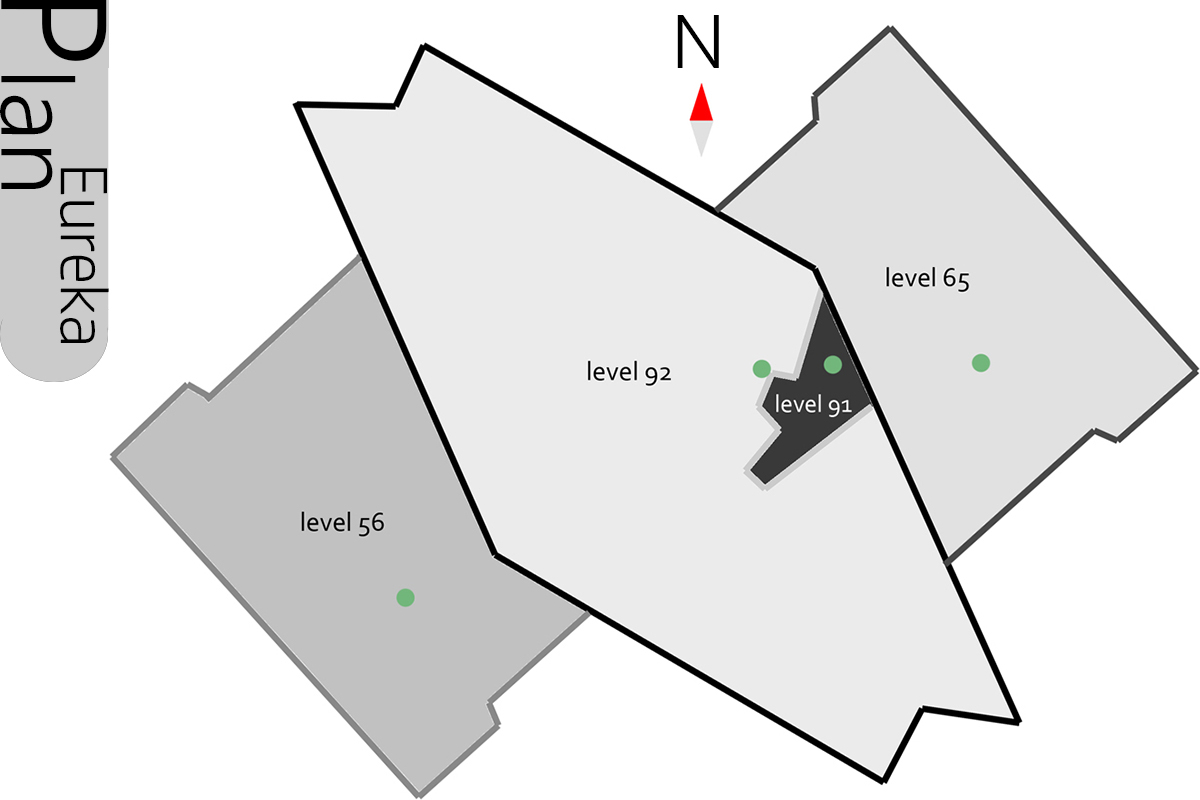 |
Plan of Eureka Tower - the green dots show the location of the Tillandsia plants on level 56, 65, 91, 92. Level 91 is an access way to the higher level 92. |
16 Oct 2014 - Today I checked the plant experiments on Eureka Tower that had been there since 17 June - it was wild weather fine saturating rain driving in on the wind and not the most pleasant place to be at that height. The plants have survived the past 4 months of winters cool, wild salt winds and apart from some old leaf die back (these are the leaves farthest from the growing tip) which is probably attributed to the acclimatization to the plants to the new environment they are fine. The Tillandsia at all four locations are growing well. Everything is secure, nothing has blown away and one plant at level 91 is even flowering. The next phase is to see how the selected species of Tillandsia perform in the dryer and hotter months ahead.

Tillandsia on Eureka Tower level 65 -16 Oct 2014
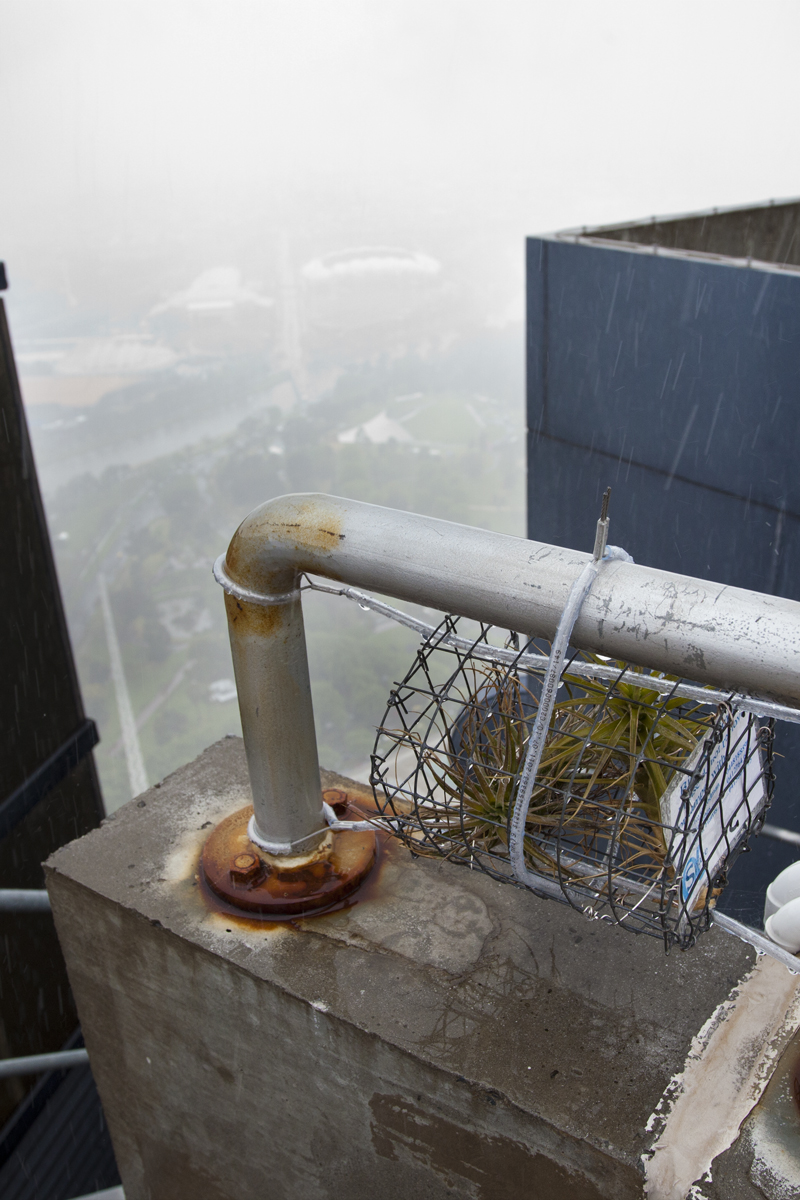
Tillandsia on Eureka Tower level 92 -fully exposed to the winds and weather
16 Oct 2014 |
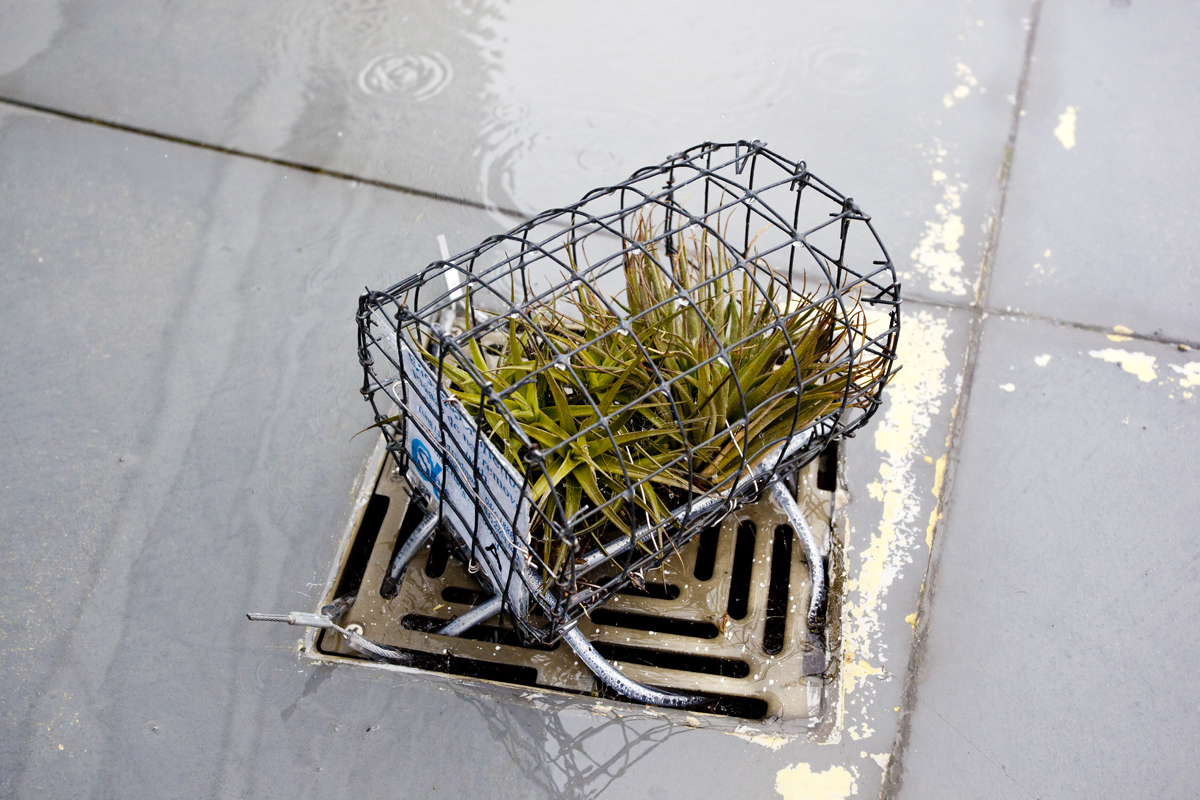
Tillandsia on Eureka Tower level 65 -16 Oct 2014
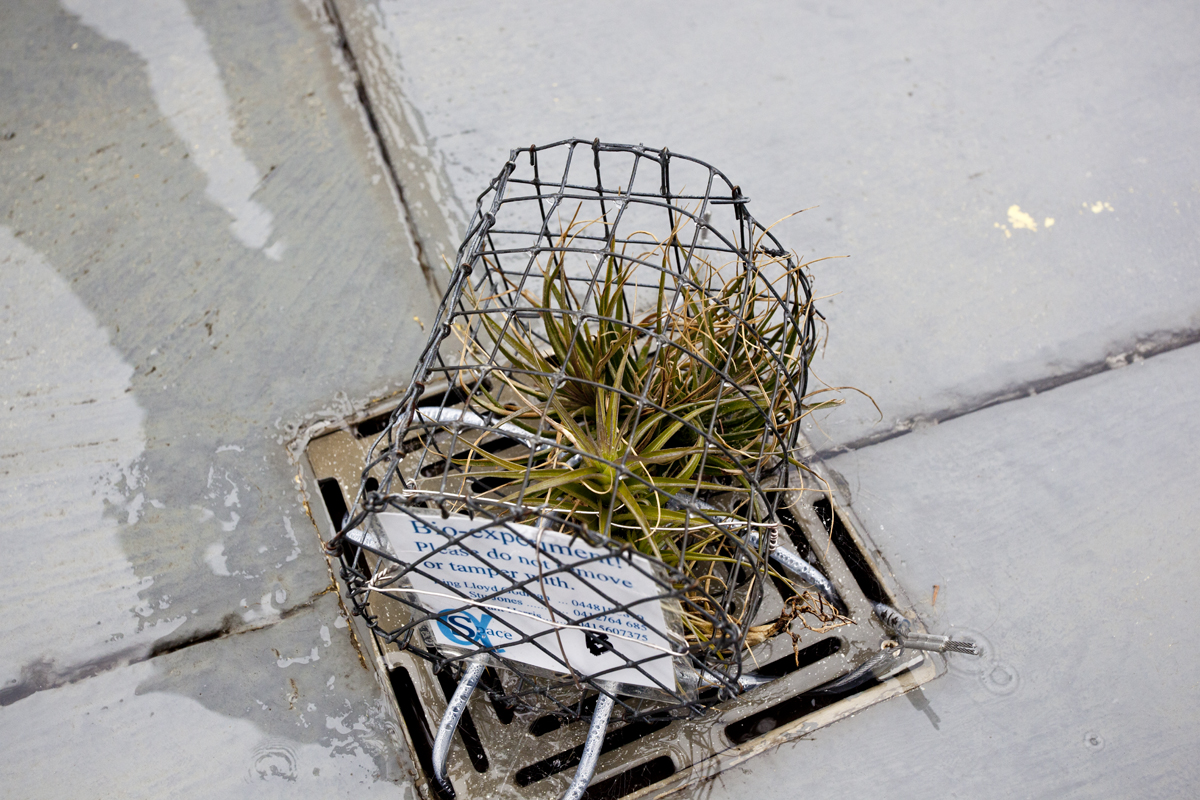
Tillandsia on Eureka Tower level 56 -16 Oct 2014
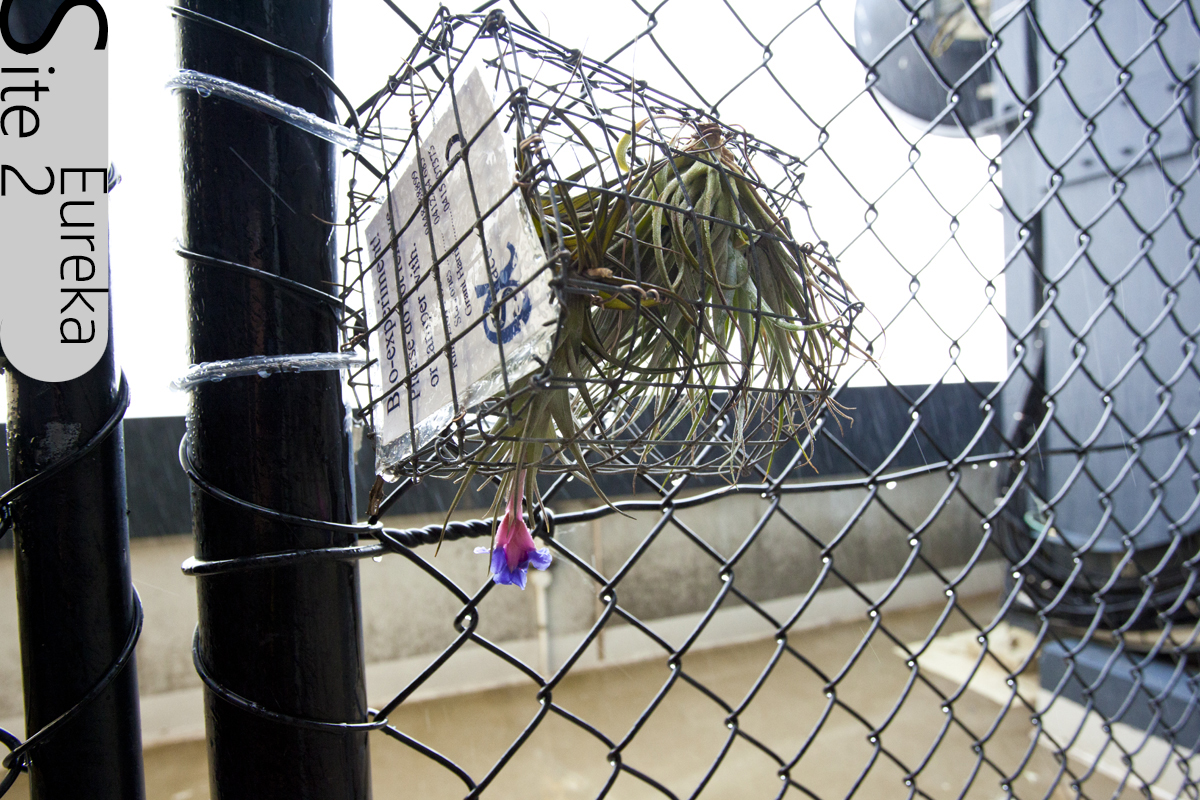
Tillandsia on Eureka Tower level 91 -16 Oct 2014
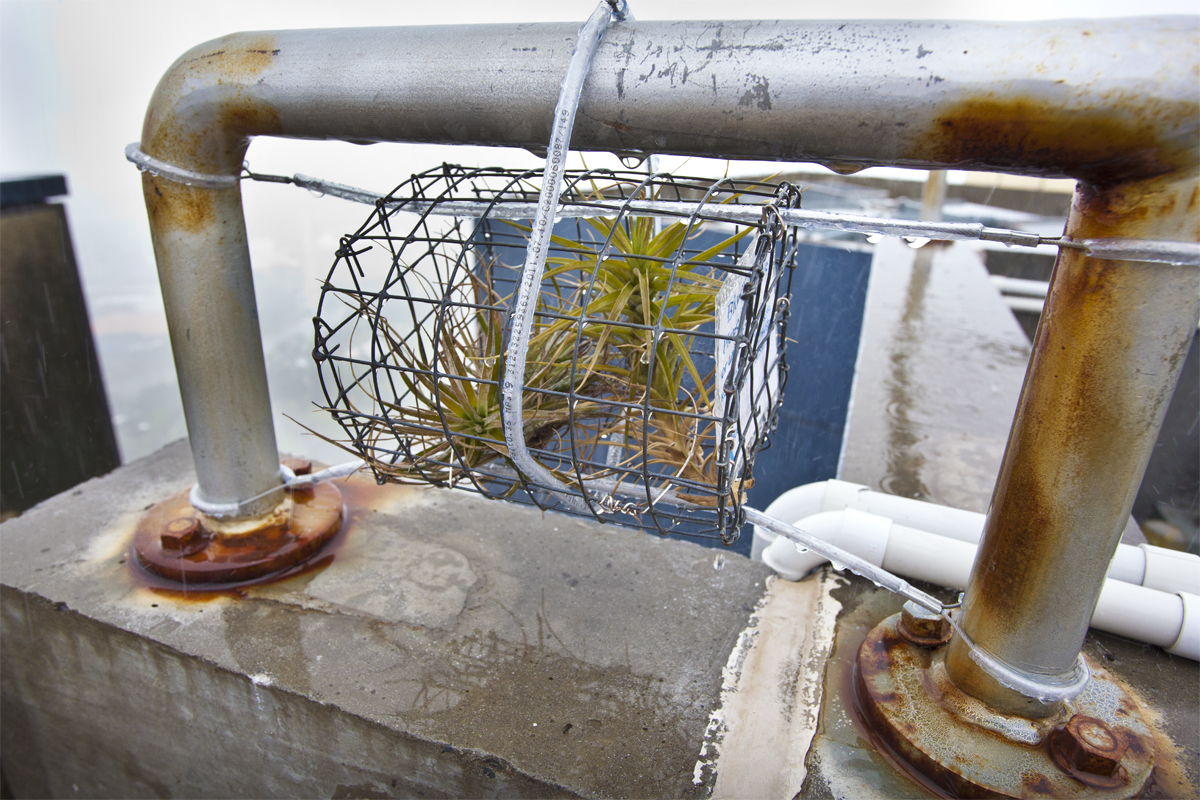
Tillandsia on Eureka Tower level 92 -fully exposed to the winds and weather
16 Oct 2014
|
17 June 2014. Today we installed some Tillandsia plants in wire cages wired down to fixing points at four locations on Melbourne's tallest building Eureka Tower. Plant cages were installed at level 56, 65, 91 and 92.
Following the success of the Airborne installation of 8 suspended rotating air plant sculptures as part of the Melbourne City Arts Grants Program 2013, where the plants were suspended with no auxiliary watering for 14 months through record heat and long dry periods in central Melbourne we decided to push the plant installation to new heights. Unlike current vertical gardens the plants works offer soil and maintenance free installations.
These are experiments to see how the plants grow at such a height from the ground. As far as I know the tallest plant install on a building in the world - from what I can make out the tallest is Bay Sands Singapore at 55 stories so it is a significant step upwards and opens the a new way of incorporating plants on high rise buildings.
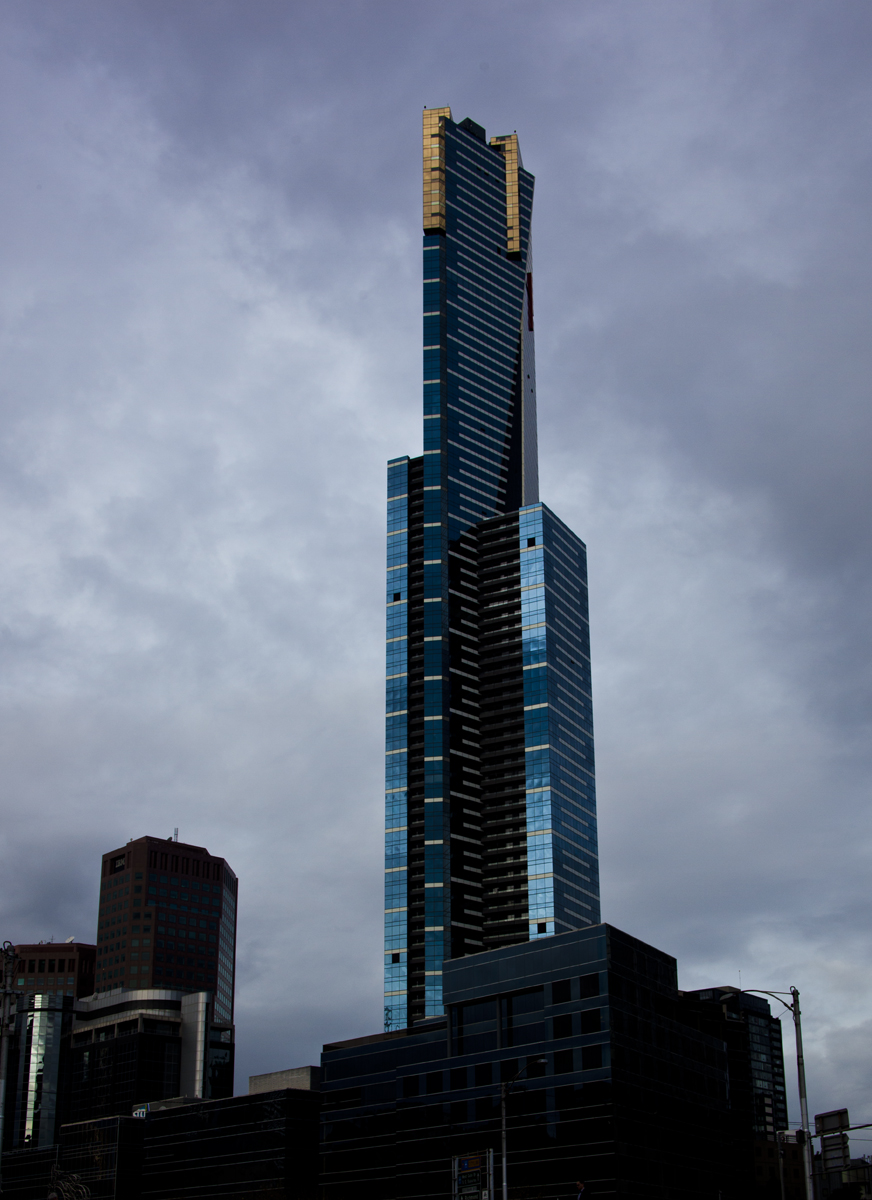
Mouse over to see locations
The tower is named after the Eureka Stockade, a rebellion during the Victorian gold rush in 1854. This has been incorporated into the design, with the building's gold crown representing the gold rush and a red stripe representing the blood spilt during the revolt. The blue glass cladding that covers most of the building represents the blue background of the stockade's flag and the white lines also represent the eureka stockade flag. While the plant cages are designed to protect the plants from being blown away, they are also a reference the only person imprisoned as a result of the Eureka Stockade, Henry Seekamp Editor of the Ballarat Times, who was found guilty of seditious libel.
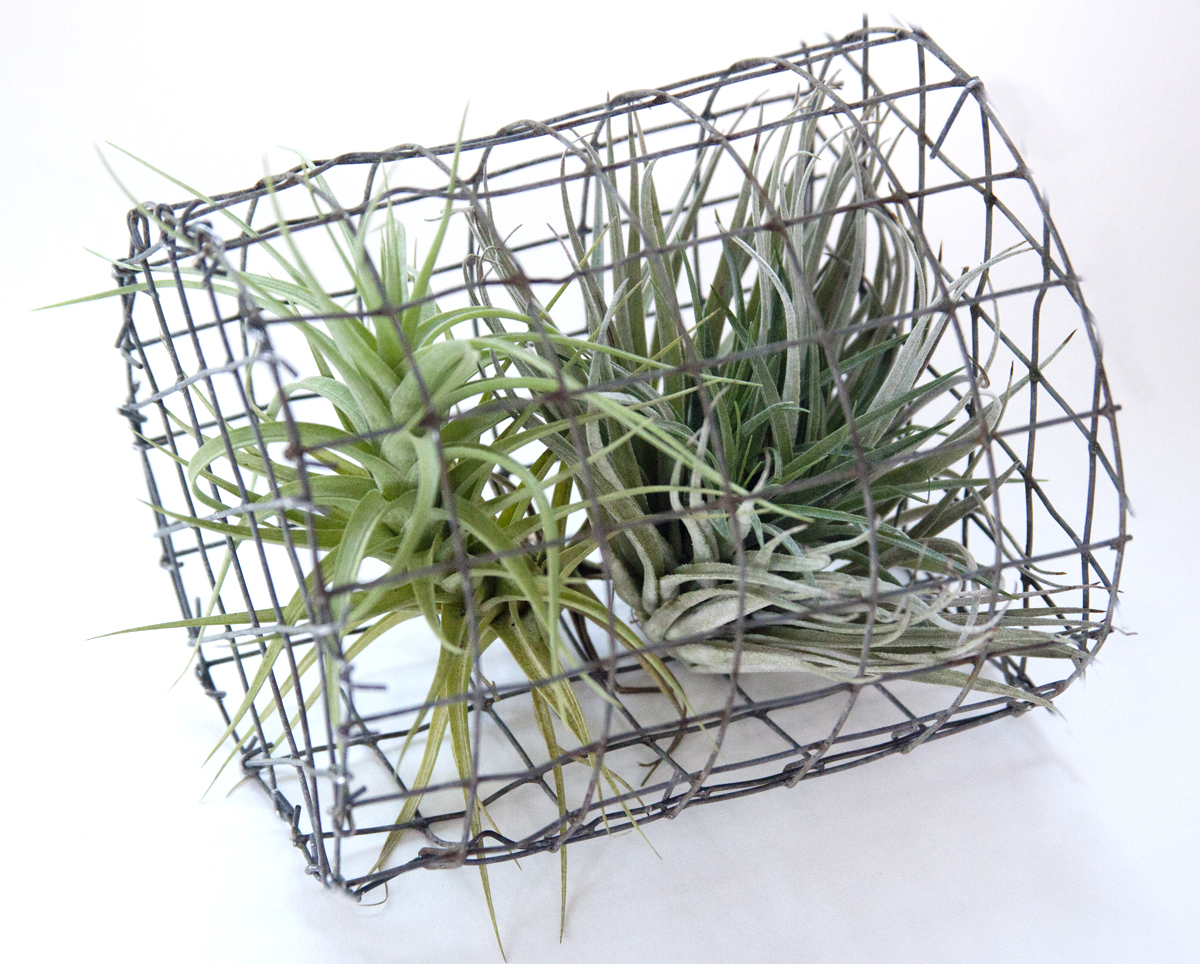
A plant cage constructed from recycled mesh. Over a period of years, the plants will escape the cage by growing through the mesh.

Grant Harris environmental scientist attaches the plant cage to a drain grate at level 56 Eureka Tower. Stu Jones structural engineer, and Lloyd Godman ecological artist look on.
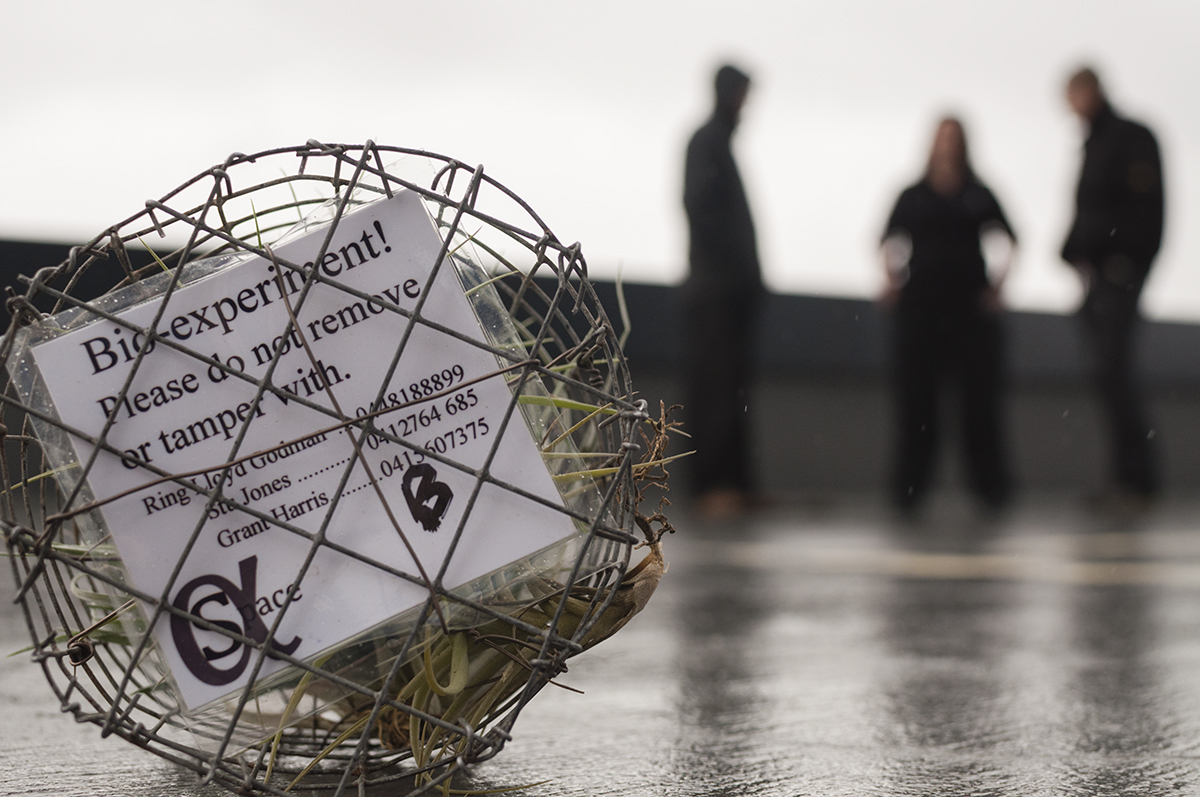
A plant cage ready to be installed
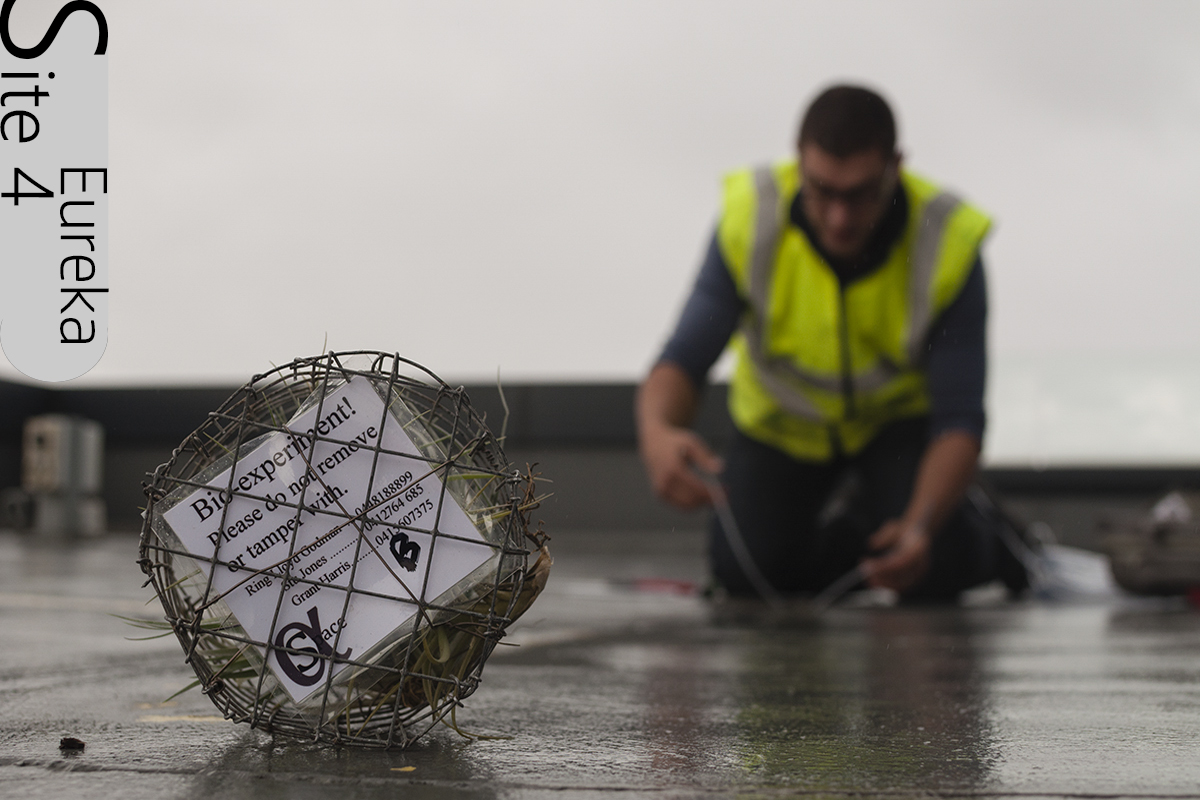
Grant Harris environmental scientist attaches the plant cage to a drain grate at level 56 Eureka Tower, another cage sits in the foreground.
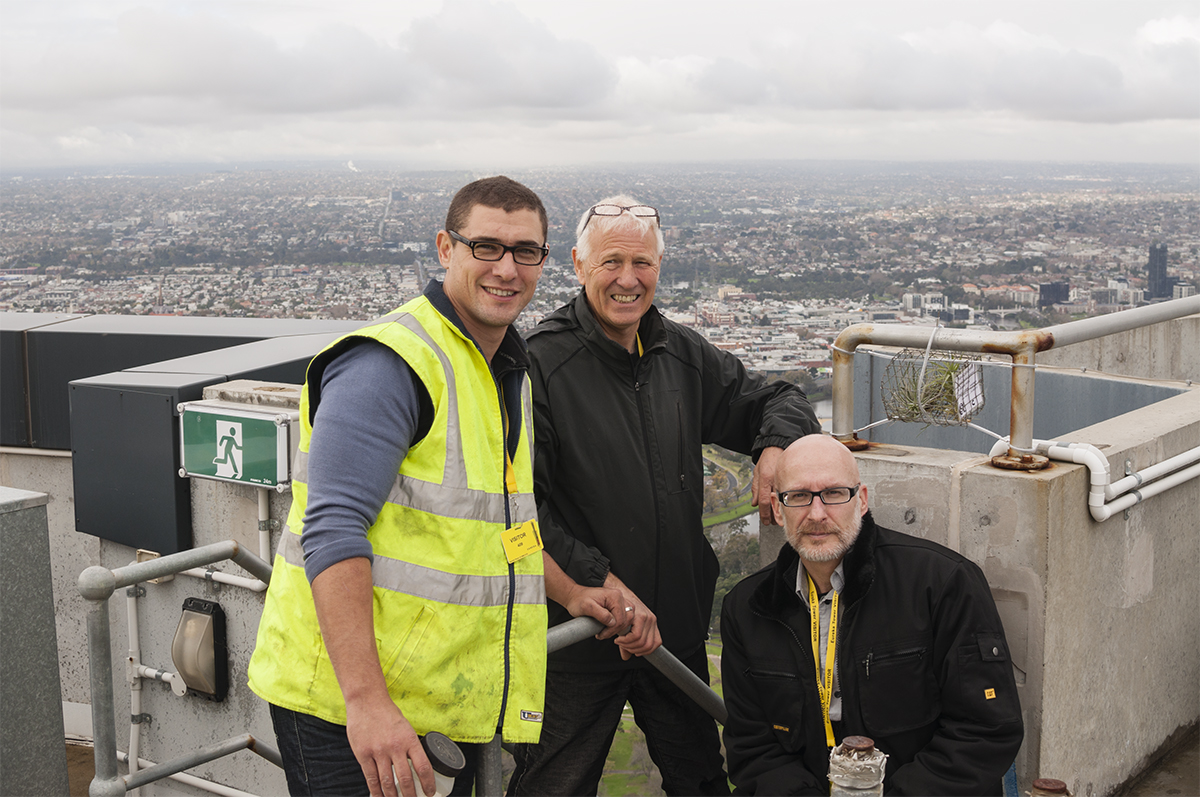
Grant Harris environmental scientist, Lloyd Godman ecological artist and Stu Jones structural engineer, on Eureka Tower level 92 about 300m at the top - 200km plus winds. Now we wait to see how they grow! (the air plant cage is above Stu's head).
thanks to Katerina Richterova for the photographs and to Trevor Foon for the signage

|